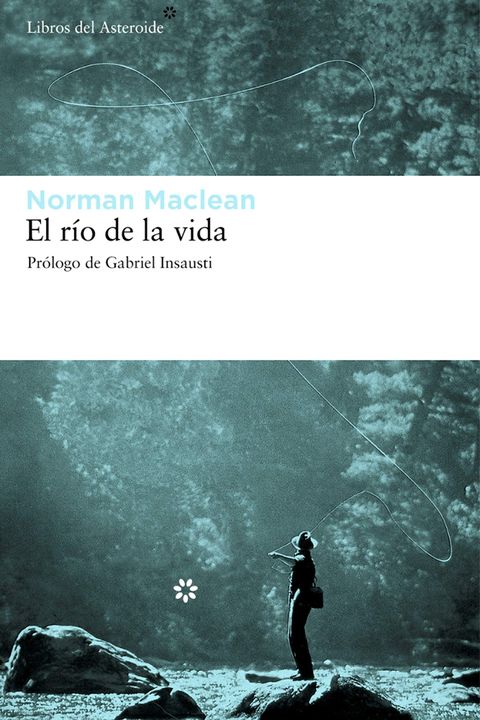Citas de El río de la vida (Libros del Asteroide nº 67)
Eventually, all things merge into one, and a river runs through it. The river was cut by the world's great flood and runs over rocks from the basement of time. On some of the rocks are timeless raindrops. Under the rocks are the words, and some of the words are theirs.
I am haunted by waters.
Each one of us here today will at one time in our lives look upon a loved one who is in need and ask the same question: We are willing to help, Lord, but what, if anything, is needed? For it is true we can seldom help those closest to us. Either we don't know what part of ourselves to give or, more often than not, the part we have to give is not wanted. And so it is those we live with and should know who elude us. But we can still love them - we can love completely without complete understanding.
My father was very sure about certain matters pertaining to the universe. To him all good things-trout as well as eternal salvation-come by grace and grace comes by art and art does not come easy.
One of life's quiet excitements is to stand somewhat apart from yourself and watch yourself softly becoming the author of something beautiful even if it is only a floating ash.
In our family, there was no clear line between religion and fly fishing. We lived at the junction of great trout rivers in western Montana, and our father was a Presbyterian minister and a fly fisherman who tied his own flies and taught others. He told us about Christ's disciples being fishermen, and we were left to assume, as my brother and I did, that all first-class fishermen on the Sea of Galilee were fly fishermen and that John, the favorite, was a dry-fly fisherman.
At sunrise everything is luminous but not clear. It is those we live with and love and should know who elude us. You can love completely without complete understanding.
Yet even in the loneliness of the canyon I knew there were others like me who had brothers they did not understand but wanted to help. We are probably those referred to as "our brother's keepers," possessed of one of the oldest and possible one of the most futile and certainly one of the most haunting instincts. It will not let us go.
All there is to thinking is seeing something noticeable which makes you see something you weren't noticing which makes you see something that isn't even visible.
When I was young, a teacher had forbidden me to say "more perfect" because she said if a thing is perfect it can't be more so. But by now I had seen enough of life to have regained my confidence in it.
Many of us would probably be better fishermen if we did not spend so much time watching and waiting for the world to become perfect.
I had as yet no notion that life every now and then becomes literature—not for long, of course, but long enough to be what we best remember, and often enough so that what we eventually come to mean by life are those moments when life, instead of going sideways, backwards, forward, or nowhere at all, lines out straight, tense and inevitable, with a complication, climax, and, given some luck, a purgation, as if life had been made and not happened.
When I looked, I knew I might never again see so much of the earth so beautiful, the beautiful being something you know added to something you see, in a whole that is different from the sum of its parts. What I saw might have been just another winter scene, although an impressive one. But what I knew was that the earth underneath was alive and that by tomorrow, certainly by the day after, it would be all green again. So what I saw because of what I knew was a kind of death with the marvellous promise of less than a three-day resurrection.
To him, all good things - trout as well as eternal salvation - came by grace; and grace comes by art; and art does not come easy.
I sat there and forgot and forgot, until what remained was the river that went by and I who watched... Eventually the watcher joined the river, and there was only one of us. I believe it was the river.
Even the anatomy of a river was laid bare. Not far downstream was a dry channel where the river had run once, and part of the way to come to know a thing is through its death. But years ago I had known the river when it flowed through this now dry channel, so I could enliven its stony remains with the waters of memory.
As a Scot and a Presbyterian, my father believed that man by nature was a mess and had fallen from an original state of grace. Somehow, I early developed the notion that he had done this by falling from a tree. As for my father, I never knew whether he believed God was a mathematician but he certainly believed God could count and that only by picking up God's rhythms were we able to regain power and beauty. Unlike many Presbyterians, he often used the word "beautiful.
You like to tell true stories, don't you?' he asked, and I answered, 'Yes, I like to tell stories that are true.'
Then he asked, 'After you have finished your true stories sometime, why don't you make up a story and the people to go with it?
Only then will you understand what happened and why.
It is those we live with and love and should know who elude us.
